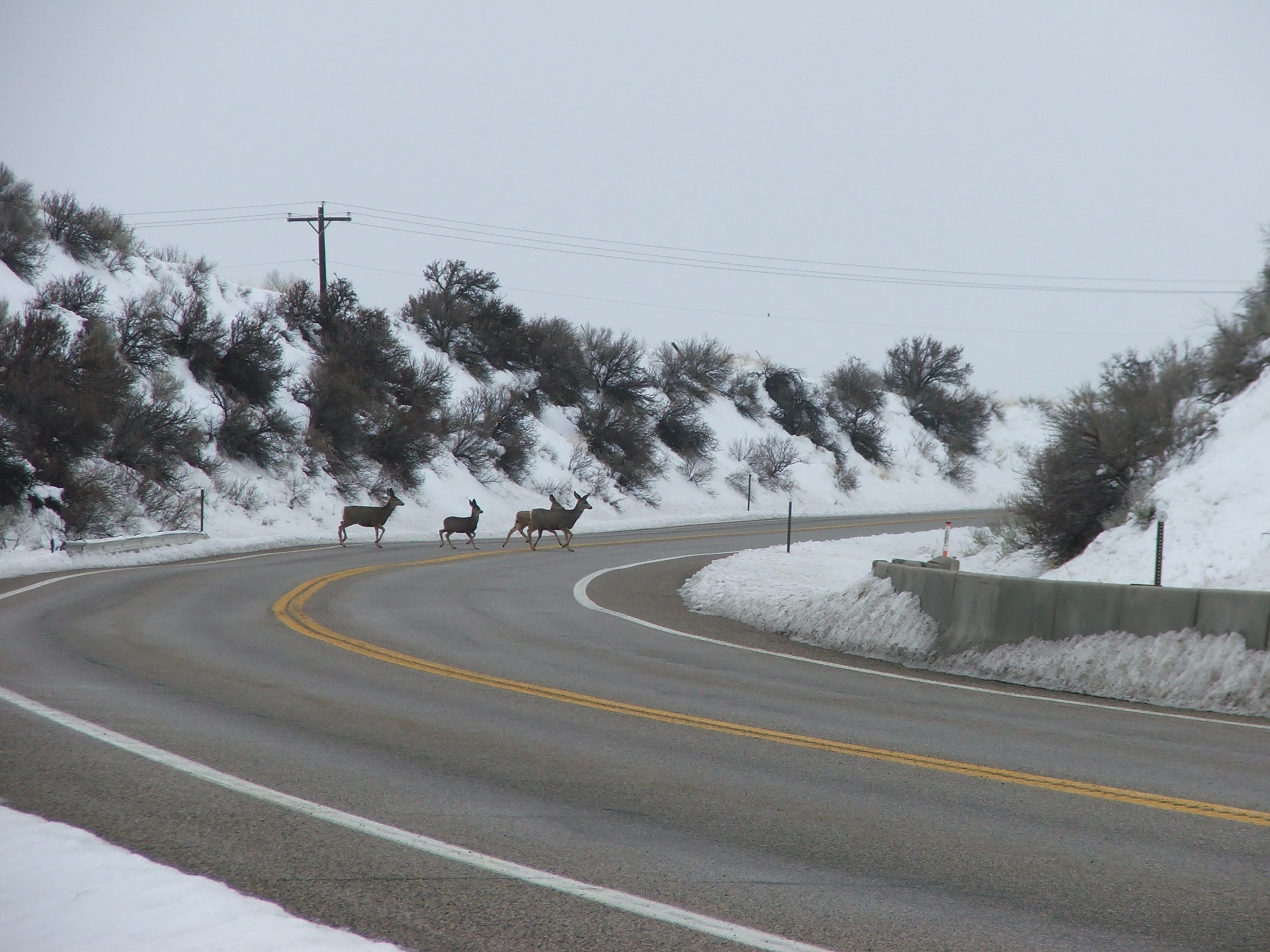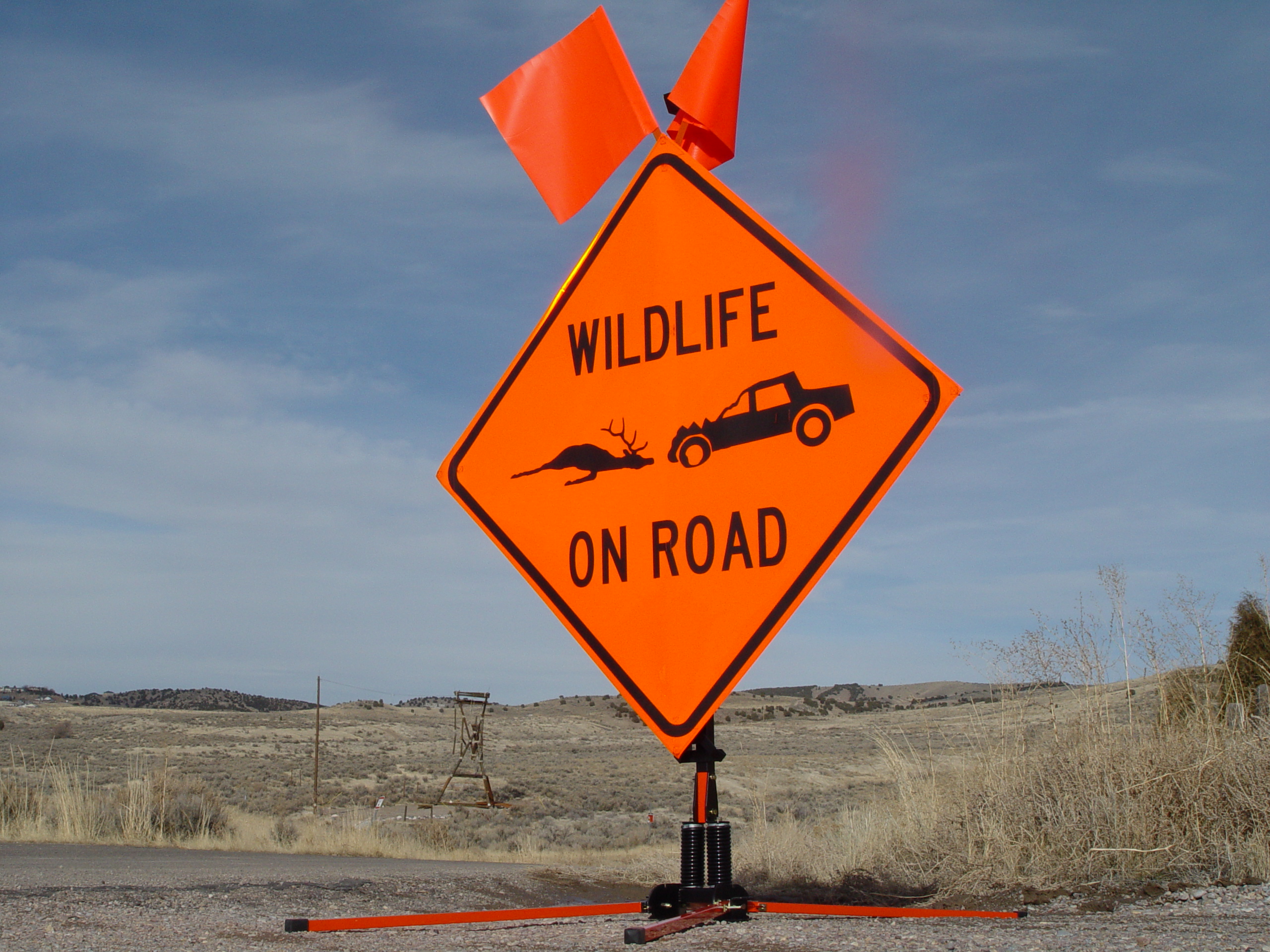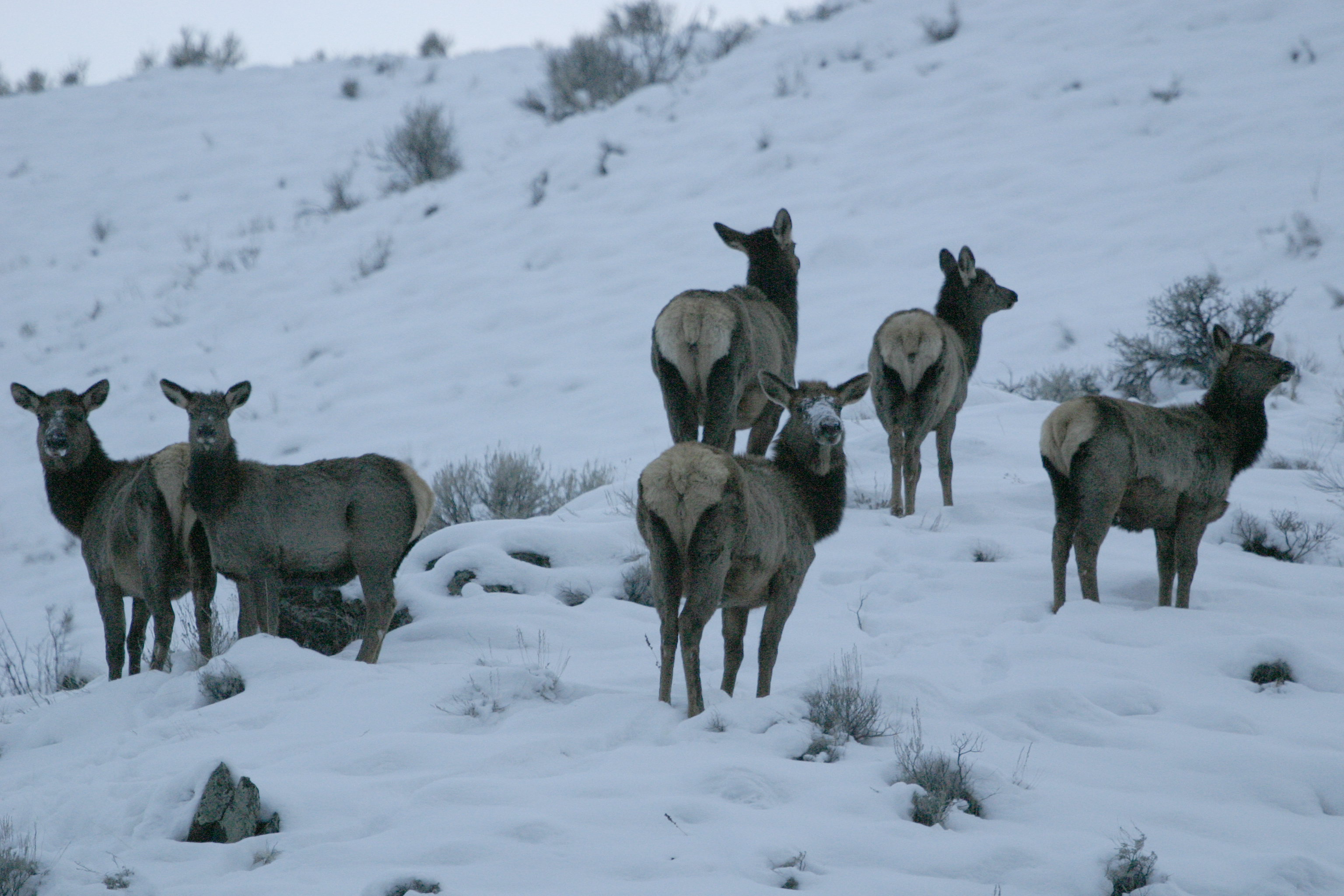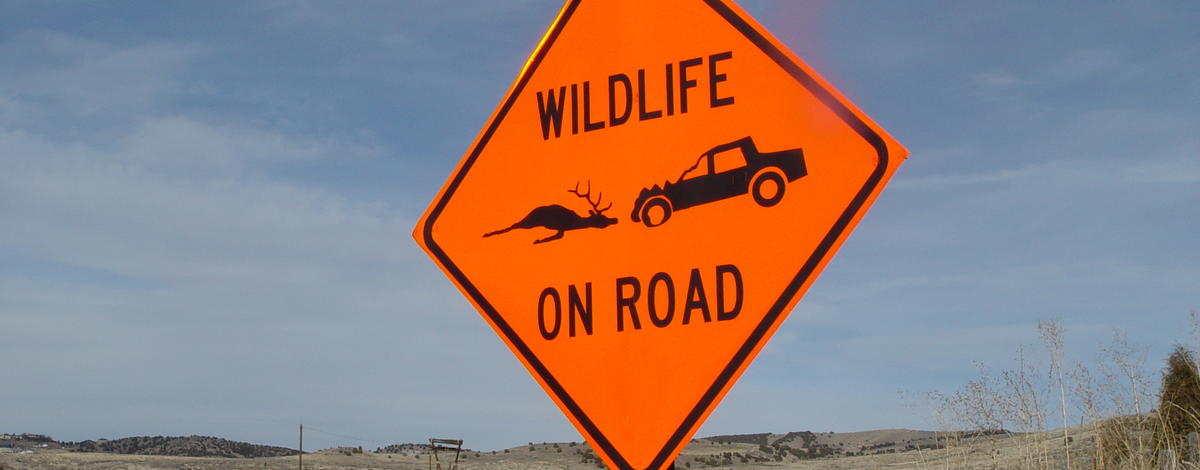As winter weather brings on a winter wonderland, it also increases the movement of big game, namely mule deer, elk, and moose. Animals will migrate to lower elevations where there is usually less snow, warmer temperatures, vegetation for browsing and thermal cover. To get to these important winter ranges, they often have no choice but to cross roads, highways, and interstates—sometimes crossing back and forth at a particular spot each day.
That’s why motorists will see more wildlife on or near roadways during winter months, like the large herd of elk recently spotted crossing the highway near Nounan in Bear Lake County or the groups of deer that go back and forth across the interstate near Malad. Landowners often see more big game moving onto their properties this time of year as well, sometimes coming into livestock feedlines and haystacks.
These events are common throughout Idaho every winter, but there are things people can do to help reduce conflicts with wildlife on the move.
- Motorists are encouraged to be especially watchful for wildlife during winter, especially at night, or during morning and evening hours when animals are most active.
- Driver slower in those areas you know are hotspots for animal crossings.
- Pay attention to wildlife crossing signs and electronic reader boards. They are there for a reason!
- Where you see one deer or elk, there are likely others! Don’t forget to watch for stragglers that jump out at the last minute.
- When slowing down to avoid wildlife on or near the road, use your flashers to warn other motorists of your decreased speed and potential dangers of crossing animals.
- Please report roadkill online via Idaho Fish and Game’s webpage https://idfg.idaho.gov/species/roadkill. Reporting roadkill gives Fish and Game and the Idaho Transportation Department information to help prevent wildlife losses and make highways safer. Note that some roadkill can be salvaged, including deer and elk. Use the same webpage to find out which species are salvageable and the mandatory reporting requirements to follow.
- If you are a landowner dealing with conflicts caused by wintering big game on your property, especially with feedlines and haystacks, please contact the Fish and Game Landowner-Sportsman Coordinator for your region. In the Southeast Region, please contact Colby Hay at 208-232-4703. Fish and Game has programs and tools to help reduce and manage depredation impacts.




